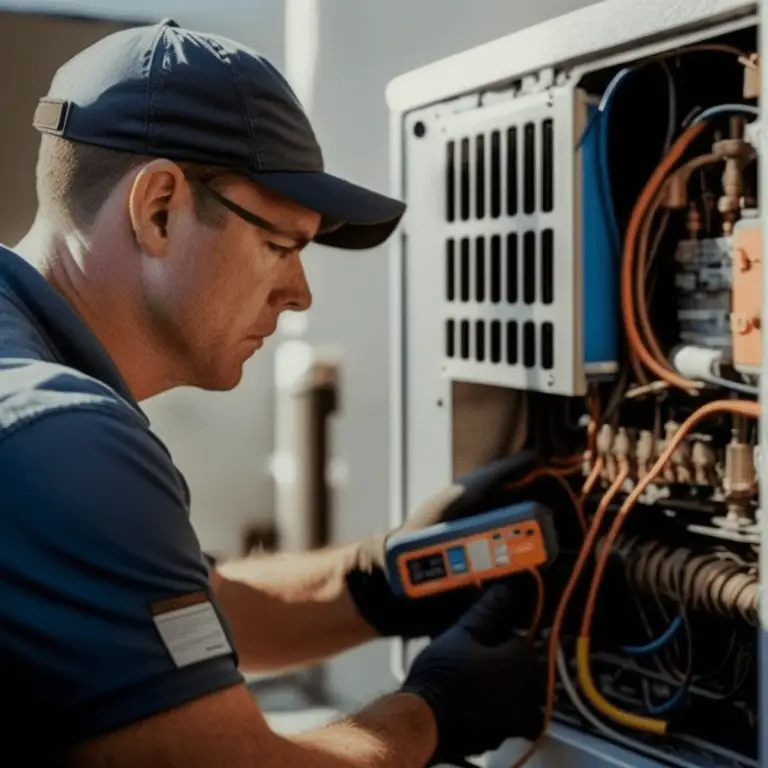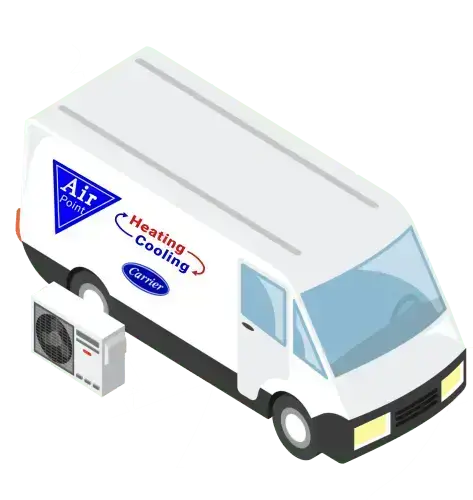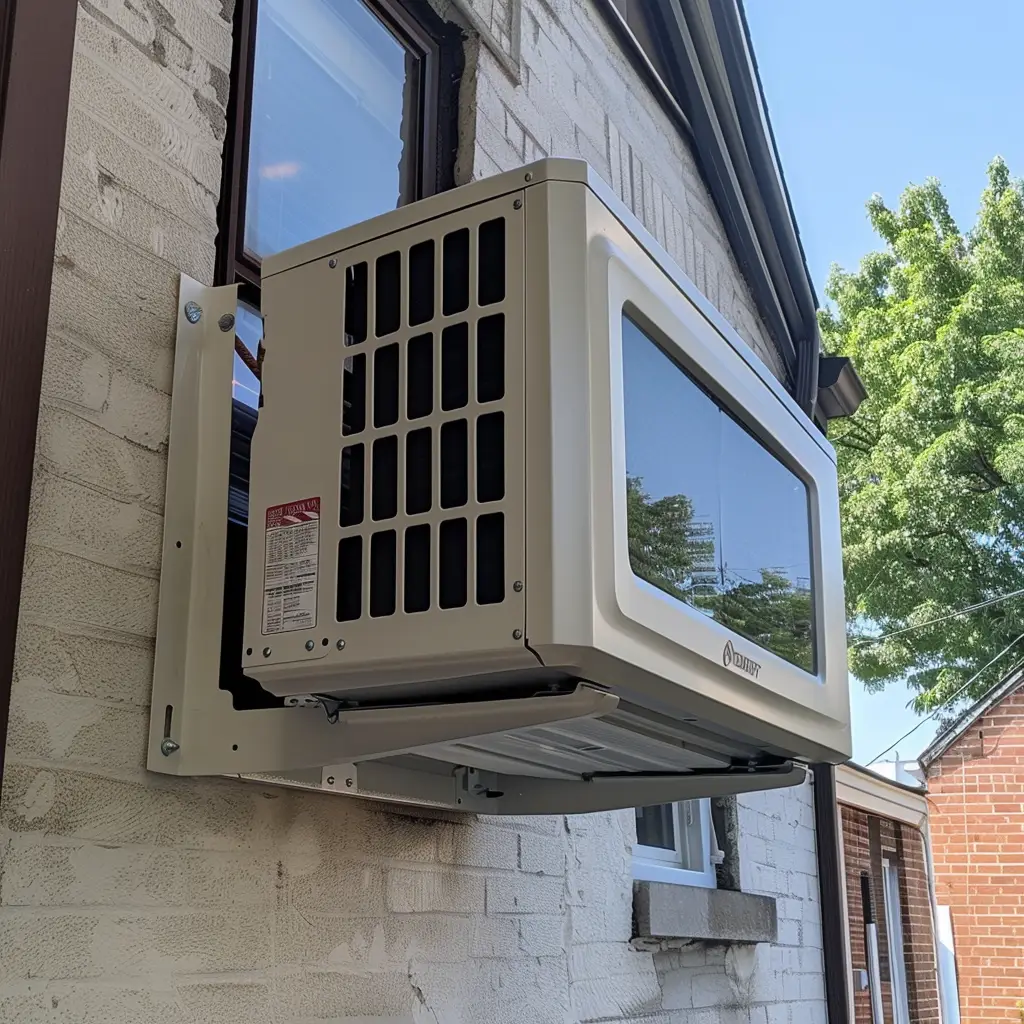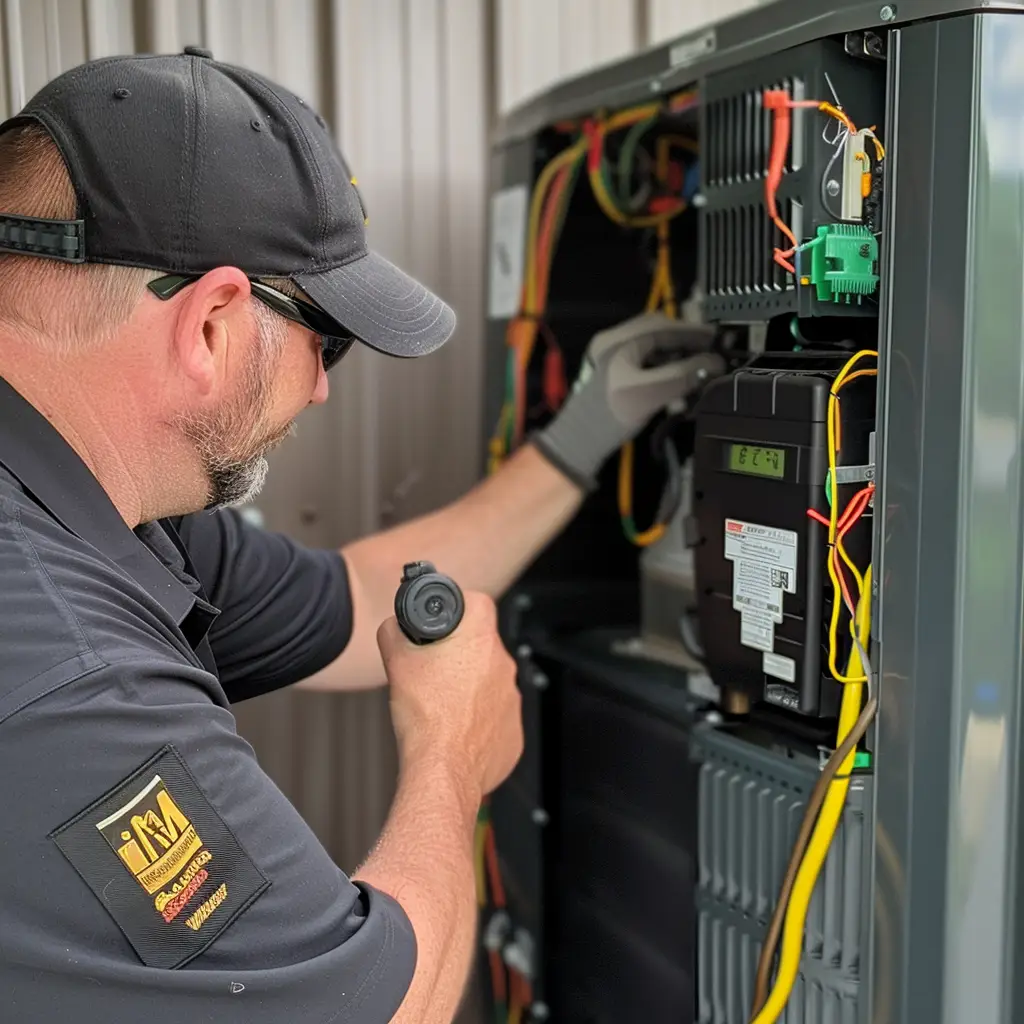Heating, ventilation, and air conditioning (HVAC) systems are essential for every home or business, especially during extreme weather conditions. An efficient HVAC system can improve your indoor air quality, reduce energy bills, and provide comfort and safety for everyone inside the building.
However, installing or replacing an HVAC system can be a significant investment that requires careful planning and consideration. The cost of an HVAC system depends on several factors such as the type of system, size, efficiency rating, installation, and maintenance. To help you make an informed decision, AirPoint has created the ultimate HVAC cost guide.
In this article, we’ll discuss everything you need to know about HVAC costs, including the factors that affect the cost and how to save money.
Types of HVAC Systems
There are several types of HVAC systems, each with different features and cost ranges. The most common types of HVAC systems are:
- Central Air Conditioning System – uses ducts to distribute cooled air throughout the building.
- Split Air Conditioning System – has an indoor and outdoor unit connected by refrigerant lines.
- Heat Pump – uses refrigerant to transfer heat from one place to another.
- Furnace – heats air and distributes it throughout the building using ducts.
- Boiler – heats water and distributes steam or hot water through radiators or in-floor heating systems.
- Ductless Mini-Split System – has an indoor and outdoor unit connected by a conduit and doesn’t require ducts.
Factors that Affect HVAC Costs
The cost of an HVAC system depends on several factors such as:
- Type and Size of System – larger systems or those with advanced features will cost more.
- Efficiency Rating – systems with higher efficiency ratings will cost more upfront but will save money on energy bills in the long run.
- Installation – the cost of installation varies depending on the complexity of the system and the labor required.
- Ductwork – if your building doesn’t have ductwork, installing it will increase the cost of the system.
- Geographic Location – installation and maintenance costs vary depending on the local climate and availability of HVAC contractors.
HVAC Installation Costs
The installation cost of an HVAC system varies depending on the type of system and the complexity of the installation. On average, the installation cost ranges from $3,500 to $7,500. Here are some estimated costs for different types of HVAC systems:
- Central Air Conditioning System – $3,000 to $7,000
- Split Air Conditioning System $2,500 to $7,500
- Heat Pump – $3,500 to $8,500
- Furnace – $2,500 to $7,500
- Boiler – $3,500 to $7,500
- Ductless Mini-Split System – $2,000 to $7,000
HVAC Maintenance Costs
To keep your HVAC system in top condition, regular maintenance is necessary. The cost of maintenance depends on the type of system and the level of service required. Here are some estimated costs for different types of HVAC systems:
- Central Air Conditioning System – $150 to $500 per year
- Split Air Conditioning System – $150 to $500 per year
- Heat Pump – $150 to $500 per year
- Furnace – $100 to $400 per year
- Boiler – $100 to $400 per year
- Ductless Mini-Split System – $100 to $400 per year
How to Save Money on HVAC Costs
- Choose the Right Size and Type of System – getting a system that is too large or too small can cause unnecessary expenses in the long run. Consult with an HVAC professional to determine the appropriate size and type of system for your building.
- Look for High-Efficiency Ratings – while high-efficiency systems may cost more upfront, they will save you money on energy bills in the long run.
- Regular Maintenance – regular maintenance can prevent costly repairs and prolong the lifespan of your system.
- Upgrade Your Insulation – improving your building’s insulation can reduce the workload on your HVAC system, thus lowering energy bills.
- Use a Programmable Thermostat – a programmable thermostat can help you save money on energy bills by adjusting the temperature when you’re away from home or sleeping.
AirPoint – Your Expert HVAC Contractor in Toronto for Reliable, Professional Service
Investing in an HVAC system is essential for the comfort and safety of those in a building. Costs vary depending on several factors. To make an informed decision and save money, follow the tips in this guide. AirPoint is a reliable, professional HVAC contractor in Toronto, a Carrier factory authorized dealer, and NATE certified. With HomeStars Best of the Best 2023 award and 5 stars on Google and HomeStars, we can help you choose the right HVAC system, install and maintain it. Contact us for expert advice and service.
To learn more about understanding HVAC system costs, check out this video by Andy’s Corner HVAC
HVAC FAQ: Your Questions Answered About Installation, Replacement, and Cost
Read our HVAC FAQ to find more answers to common questions related to installation, replacement, and cost. Learn about the lifespan of an HVAC system, financing options, and the benefits of regular maintenance.
How often should I replace my HVAC system?
The lifespan of an HVAC system varies depending on the type and maintenance. As a professional HVAC contractor, AirPoint recommends that you replace your system every 10-15 years, depending on the condition of your current system.
Can I install an HVAC system myself?
No, it is not recommended to install an HVAC system yourself. HVAC systems are complex and require specialized knowledge and tools. At AirPoint, our team of expert technicians is trained to install HVAC systems correctly and safely, ensuring optimal performance and safety.
Can I finance my HVAC system?
Yes, many HVAC contractors offer financing options, and AirPoint is no exception. We understand that investing in an HVAC system can be a significant expense, which is why we offer financing options to help make it more affordable. We'll work with you to find a financing option that suits your needs and budget.
How often should I have my HVAC system maintained?
It's recommended that you have your HVAC system maintained at least once a year, preferably before the start of the heating or cooling season. At AirPoint, we offer comprehensive maintenance plans that include regular check-ups, cleaning, and repairs, ensuring that your system operates at peak performance and efficiency.
Can I upgrade my existing HVAC system to be more energy-efficient?
Yes, there are several ways to upgrade your existing HVAC system to be more energy-efficient. At AirPoint, we can help you choose the best energy-efficient upgrades for your system, such as programmable thermostats, energy-efficient air filters, or sealing and insulating your ducts. These upgrades can help you save money on your energy bills and reduce your carbon footprint.





